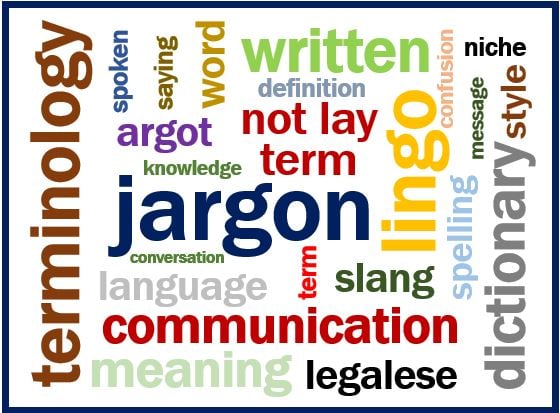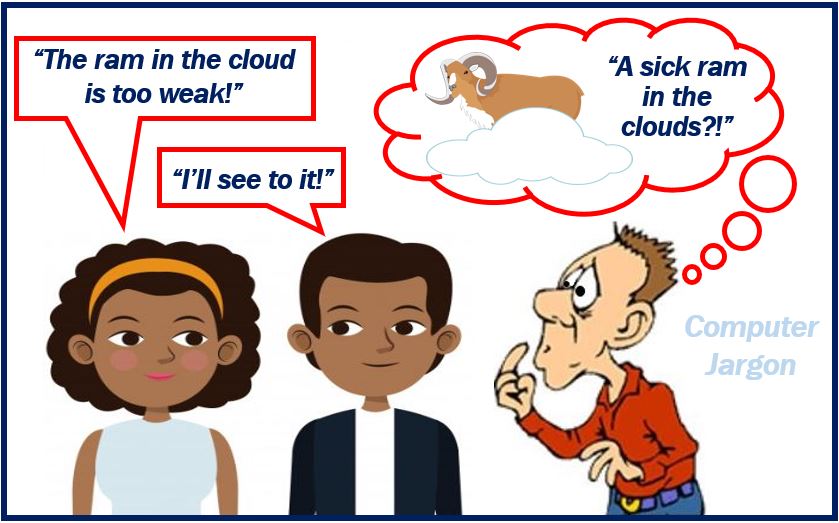The term jargon refers to special expressions, phrases, or words that people in a group, profession, or niche use when they are talking to one another other. Only individuals specialized in that specific field have a good understanding of their meanings. The expression industry term also means a word or phrase that only members of a profession or industry niche understand.

If you hear a group of specialist professionals or workers using jargon as they talk to each other, and you don’t work in their field, you might find it hard to understand them.
The Cambridge Dictionary has the following definition of the term:
“Special words and phrases that are used by particular groups of people, especially in their work.”
Terminology and slang
Terminology
If you hear somebody say: “That is business terminology,” they mean it is business jargon. The same applies to engineering terminology, architecture terminology, biology terminology, etc.
Slang
The word slang has a similar meaning but tends to be used more in non-professional and non-business situations.
Also, most people understand what slang terms mean. If an American says “fifty bucks,” everyone else in the USA understand that she means “fifty dollars.” The word buck is slang for dollar.

Jargon vs. layman’s terms
The opposite of jargon is in layman’s terms. For example, an author, editor, or language teacher may say:
“Overall, it is a good article, apart from a few cases of redundancy, which in layman’s terms means using more words than necessary to say something.”
When talking about language, writing, and speaking, redundancy is jargon for using too many words. For example, look at the sentence:
“He is a rich man with a lot of money.” (‘with a lot of money’ is an example of redundancy)
Saying that somebody is rich already means they have a lot of money, so you don’t need to write it.
Forex terminology
Forex traders, i.e., people who buy and sell in the foreign exchange market, use a lot of jargon. Here is a list of some of them:
- Ask – the seller’s price.
- Bear – a term use when somebody believes prices will fall or the market will decline.
- Bull – opposite of bear, used when somebody believes the market will rise or prices will go up.
- Close Position – a transaction that leads to the closure of a once-open position when completed.
- BoE and ECB – Bank of England and European Central Bank.
- GTC – good till cancelled.
- Leverage – the amount of money a bank will let a trader borrow in order to carry out a number of transactions.
Etymology of jargon
Etymology refers to where words came from, i.e., their origin, and whether and how their meanings have changed over time.
According to the Online Etymology Dictionary, the term jargon first appeared in the English language in the mid-fourteenth century in England. At the time, it meant “gibberish, jabbering, chattering, unintelligible talk.”
The word came from the Old French word Jargon, which meant “language, speech, idle talk, thieves, or the chattering of birds.” The French term came from the Latin word Garrire, which means “to chatter.”
It was not until the 1650s that the term also meant “phraseology peculiar to a profession or sect.”
